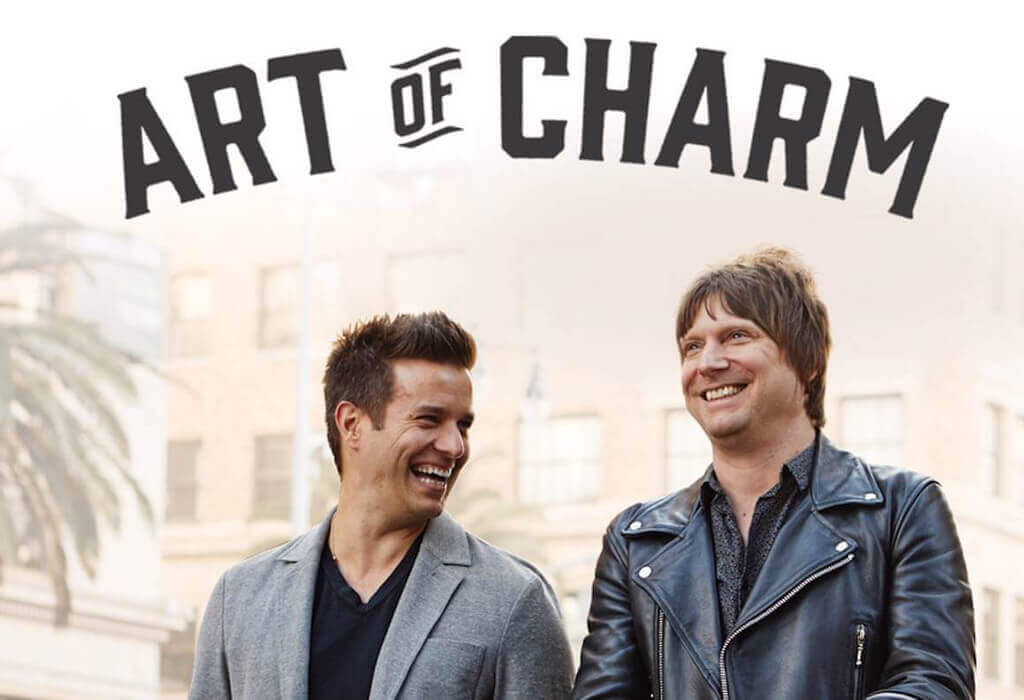 When Scott Dinsmore of Living Legend was interviewed on The Art of Charm podcast, he and Jordan touched on the famous Jim Rohn quote: “You are the average of the five people you spend the most time with.”
When Scott Dinsmore of Living Legend was interviewed on The Art of Charm podcast, he and Jordan touched on the famous Jim Rohn quote: “You are the average of the five people you spend the most time with.”
You have to wonder: Is that true? And if so, why? In what ways do the people around us shape who we are and who we become?
For insights into these questions, here are some scientific explanations on how the people around us influence who we are — and why we should choose your friends wisely surround ourselves with stellar people.
Your friends influence your emotions
Ever notice how hanging out with a positive, upbeat person can lift your mood? Or how spending time with a “downer” can drain you of joy and energy? These effects are due to what psychologists call emotional contagion.
Emotional contagion basically means that we absorb the feelings and emotions of those around us. How does this happen? According to psychologists Elaine Hatfield (at the University of Hawaii) and John Cacioppo (of the University of Chicago), it’s due to our natural tendency to mimic those around us.
When two people are together, they will unconsciously copy one another. They will make similar facial expressions. Their vocal patterns will fall in alignment. They will copy one another’s posture. And other body movements will begin to mirror one another.
And once these new gestures, postures, and facial expressions occur a feedback loop kicks in. Our brains recognize these actions and begin to feel the emotions associated with each gesture — the emotions that would otherwise cause these movements.
As Hatfield and Cacioppo explain in their article, “Subjective emotional experience is affected, moment-to-moment, by the activation and/or feedback from facial, vocal, postural, and movement mimicry.”
The impact other people’s emotions have on us isn’t just a short-lived phenomenon. In a 20-year happiness study, Harvard psychologists found that your happiness is very much impacted by the happiness levels of the people in your social network. If a friend down the street from you saw an increase in happiness, you became 25% more likely to see an increase, too.
As the article explains, “People who are surrounded by many happy people and those who are central in the network are more likely to become happy in the future … People’s happiness depends on the happiness of others with whom they are connected.”
Our urge to conform
Sometimes the impact others have on us is simply the result of conscious choice. We conform to the people around us because we choose to do so.
According to psychologists Morton Deutsch and Harold Gerard, people are driven to conform for two main reasons: to be liked and to be right. It feels good to be accepted by others and is easier to go along with the crowd than against it. And when we’re surrounded by people who have made the same decisions as us it helps us validate our own choices.
Our willingness to conform was demonstrated in a famous 1955 study by psychologist Solomn Asch. In the study groups of participants were shown three lines of different lengths. A fourth line was then shown and participants were asked which of the prior three lines this fourth line matched in length.
Here’s the kicker: In every group there was only one true participant. Everyone else was a confederate – actors planted by Asch. These confederates would state their answer before the participant, and would all agree on the wrong set of lines being a match.
How did people react in this situation? When participants had to guess which lines were the same size on their own they guessed right 99% of the time. When they were surrounded by confederates who purposely guessed wrong, they were more likely to follow the crowd and guess wrong, too. The number of correct answers dropped to 74%.
Even though people knew the right answer they would either talk themselves out of it or suppress what they knew 36% of the time for the sake of going along with the group. As you can see, we can hardly overstate how important it is to choose your friends wisely.
Your friends influence what you do
So far we’ve seen how our emotions and decisions are shaped by those around us. But what about character traits? Let’s say you saw yourself as someone who had little self-control. Could you develop more self-control by surrounding yourself with people who had that trait?
Research suggests that you can. A study on self-control published last year in the journal Psychological Science found that when someone lacks self-control they begin to value that trait more highly in other people. Not only that, when people felt as though they had low self-control and their partner had strong self-control, they reported feeling a stronger sense of dependence on their partner.
Catherine Shea, the psychologist who lead the study, summarizes the findings by pointing out that “low self-control individuals seem to implicitly surround themselves with individuals who can help them overcome temptation — you get by with a little help from your friends.”
How friends make our habits
Want to develop better habits? Then surround yourself with people who already have those habits. The effect this can have is so strong that you can even pick up on the habits of others even when you are not actively trying to do so.
Take, for example, a study done by Marquette University on the effects of weight gain among female college freshman. If a woman was on a diet and had a regular exercise regimen, then her randomly-assigned roommate would put on less weight (half a pound). If she had not been dieting and exercising, her roommate tended to gain 2.5 pounds. These findings are summarized in this article on the effects of freshman year roommates.
Study and success habits have also been found to be contagious. Among middle school students it was proven that low-achieving students who befriended high-achievers had greater academic success than those who spent time with other low-achieving students.
But just as good habits can rub off on us negative ones can as well. In the article cited above on the effects of freshman year roommates you’ll also discover how college freshman are more likely to binge drink if their roommate is a heavy drinker. And if a guy brings an Xbox or playstation into the dorm room, the study habits and GPA of his roommate decline.
Bottom line: The people we surround ourselves have a major influence on habits.
You learn by watching
Let’s say you’re at a networking event. You don’t know anyone there and are not sure exactly how to behave. Should you have another drink? What should you talk about? In situations like these, how would you figure out what to do and how to act?
Probably by watching others.
The idea that we learn from watching those around us really took off with Albert Bandura’s famous Bobo doll experiment. In this experiment children watched adults interact with a doll and were then given a chance to interact with that same doll themselves. After watching an adult act violently towards the doll, a child would mimic that behavior. But if the child saw the adult act more passively towards it, then the child would act passively, too.
In Influence: the Psychology of Persuasion, Robert Caldini talks about one factor in particular that causes us to look towards those around us for cues on how to act: uncertainty. As Caldini explains, “When we are uncertain we are willing to place an enormous amount of trust in the collective knowledge of the crowd.”
Think about the real-world implications of this: If you are unhappy with your salary but don’t know what to do about it, and your friends are in the same boat complaining, then that mindset will rub off on you. But if you’re surrounded by friends who are constantly looking to do whatever they can to improve their situation – if you have friends that bust their ass to see how they can boost their salary – than that drive and determination is going to rub off on you instead.
Other important environmental factors
It’s not just the people around you that impact your mood, habits, and overall success. The environment you’re in also influences how you grow and develop. And a big piece of that environment is the media you indulge in.
There’s no shortage of research examining the effects media has on us. Violence on TV and violent video games have been shown to increase aggression in kids. Just as aggressive lyrics in songs lead to more thoughts and feelings of aggression.
But just as media can influence our actions in aggressive ways it can also drive us toward positive behavior. Studies have shown that exposure to pro-social media decreases aggression, increases empathy, and leads to more helpful behaviors towards others.
I experienced a shift from these effects a few years ago. I used to listen to the Adam Carolla podcast every morning at work. Though I enjoyed it, after a few months, I found I was complaining all the time. (That’s the source of a lot of Carolla’s humor). Worried about the effect this was having on me, I searched for new podcasts, which led to shows like The Art of Charm. The regular injection of positivity and empowerment I got from podcasts like that created a noticeable and positive shift in my mood and outlook.
From media to friends, social scenarios to cultural precedents, we are — in a very real way — the product of our surroundings.
And yet we can choose our surroundings in many cases — and in most cases, we can certainly determine how we process and interpret them.
So choose your friends wisely and surround yourself with excellence. Find the people who elevate you. Choose the events that inspire you. Embrace the habits that improve you.
And as you do, let us know if you notice any changes in yourself as a result of the people and media you surround yourself with in the comments section below!



